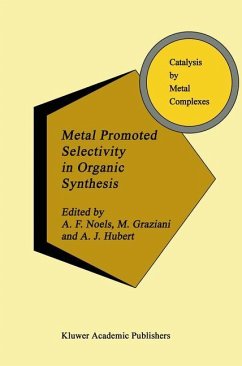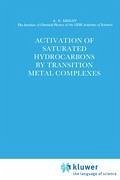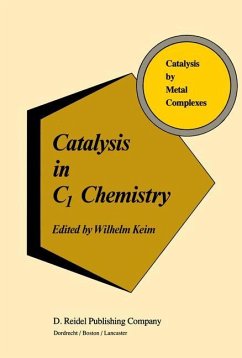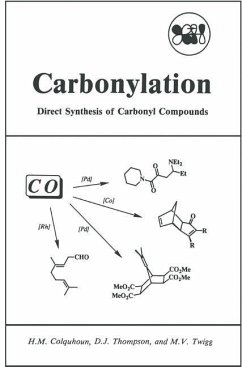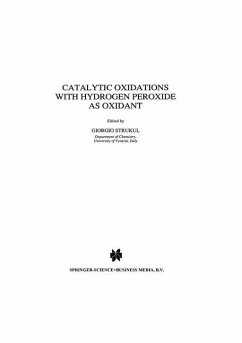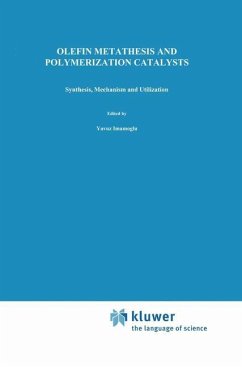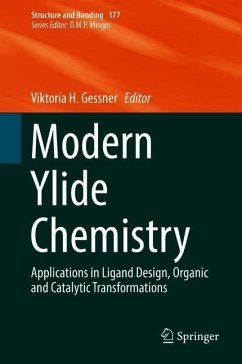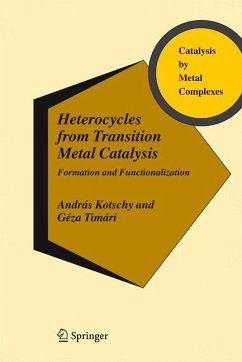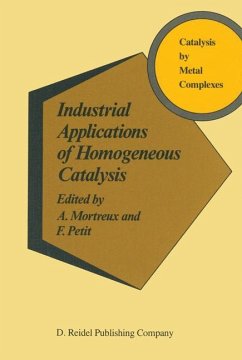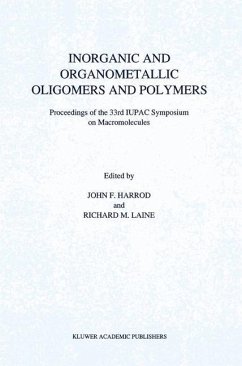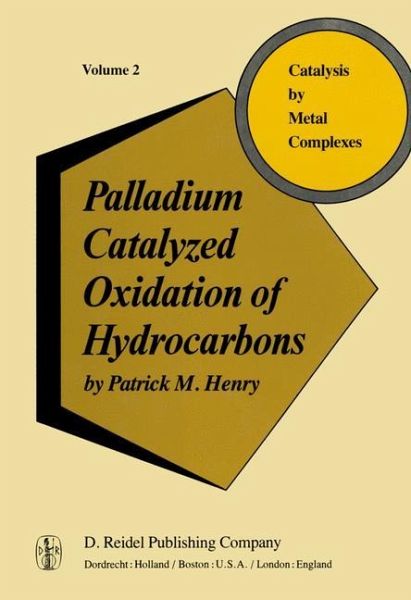
Palladium Catalyzed Oxidation of Hydrocarbons
Versandkostenfrei!
Versandfertig in 1-2 Wochen
153,99 €
inkl. MwSt.
Weitere Ausgaben:

PAYBACK Punkte
77 °P sammeln!
The field of organometallic chemistry has emerged over the last twenty-five years or so to become one of the most important areas of chemistry, and there are no signs of abatement in the intense current interest in the subject, particularly in terms of its proven and potential application in catalytic reactions involving hydrocarbons. The development of the organometallic/ catalysis area has resulted in no small way from many contributions from researchers investigating palladium systems. Even to the well-initiated, there seems a bewildering and diverse variety of organic reactions that are pr...
The field of organometallic chemistry has emerged over the last twenty-five years or so to become one of the most important areas of chemistry, and there are no signs of abatement in the intense current interest in the subject, particularly in terms of its proven and potential application in catalytic reactions involving hydrocarbons. The development of the organometallic/ catalysis area has resulted in no small way from many contributions from researchers investigating palladium systems. Even to the well-initiated, there seems a bewildering and diverse variety of organic reactions that are promoted by palladium(II) salts and complexes. Such homogeneous reactions include oxidative and nonoxidative coupling of substrates such as olefins, dienes, acetylenes, and aromatics; and various isomerization, disproportionation, hydrogenation, dehydrogenation, car bonylation and decarbonylation reactions, as well as reactions involving formation of bonds between carbon and halogen, nitrogen,sulfur, and silicon. The books by Peter M. Maitlis - The Organic Chemistry of Palladium, Volumes I, II, Academic Press, 1971 - serve to classify and identify the wide variety of reactions, and access to the vast literature is available through these volumes and more recent reviews, including those of J. Tsuji [Accounts Chem. Res. , 6, 8 (1973); Adv. in Organometal. , 17, 141 (1979)], R. F. Heck [Adv. in Catat. , 26, 323 (1977)], and ones by Henry [Accounts Chem. Res. , 6, 16 (1973); Adv. in Organometal. , 13, 363 (1975)]. F. R. Hartley's book - The Chemistry of Platinum and Palladium, App!. Sci. Pub!.





